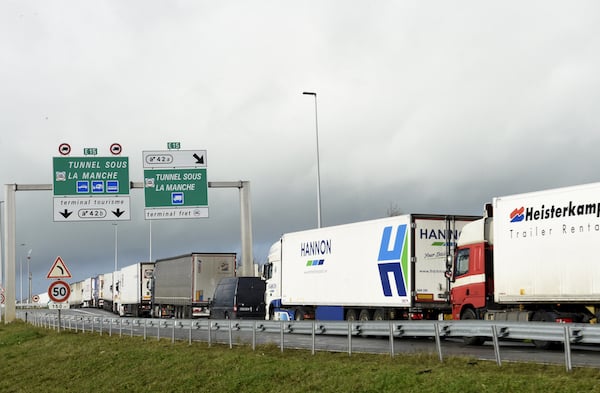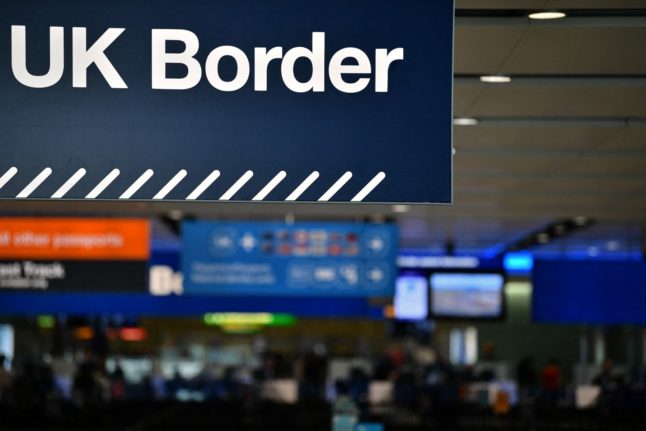The major transit hub reopened following an agreement between London and Paris to allow hauliers stranded in the UK to leave the country if they could produce a negative coronavirus test that was less than 72 hours old.
“It will take a few days to work our way through,” Communities Secretary Robert Jenrick told Sky News. “There’s going to be quite a lot of work to do.”
Much of Europe had swiftly banned British travellers following the emergence of a more transmissible variant of Covid-19 in Britain, and France’s decision to block freight movements sparked fears of food shortages.
As dramatic images showed masses of lorries backed up in Dover, British Prime Minister Boris Johnson was under intense pressure to resolve the deadlock – even as 11th-hour talks with Brussels on a post-Brexit trade deal were at a stalemate.
Jenrick said a total of around 4,000 trucks were stranded in Dover and overall in southern Kent county.
Between 700 and 800 were parked alongside the motorway heading out of London via Kent and some 3,000 were at the nearby disused airport of Manston where drivers are to be tested.
As night fell on Tuesday December 22, many drivers at Manston sounded their horns for more than half an hour in protest over the delays. Jenrick said testing would be carried out at Manston and “multiple other locations.”
If a driver tests positive following a rapid screening that normally produces results in 30 minutes, the driver will be given a more accurate swab test. In the event of two positive results the drivers will be placed in isolation in a hotel for 10 days.
French Transport Minister Jean-Baptiste Djebarri confirmed that air travel, boats and Eurostar trains would resume service as of Wednesday December 23, saying “French nationals, people living in France and those with a legitimate reason will have to be carrying a negative test.”
But his British counterpart Grant Shapps urged lorry drivers not to head to Kent expecting to board a ferry or train, even though Dover said it would reopen from midnight local time (2300 GMT) for travellers with a negative Covid result.
A handful of passenger vehicles disembarked from two ferries in Calais early Wednesday, an AFP correspondent said, but port management said traffic was not expected to pick up until later.
Food shortage worries
The measures imposed on hauliers have caused concern over shortages of some fresh food products over a holiday period already dampened by strict coronavirus restrictions.
Despite the fresh agreement – which will be reviewed on December 31 – it was unclear when traffic will begin moving again.
The French transport ministry said in a statement that all travellers from Britain would be required to present a negative Covid-19 test to their airline, ship or railway company less than 72 hours before departure.
French nationals, EU nationals or French residents carrying out essential travel will be allowed to cross the Channel.
The European Union had called on members to facilitate transit and to lift other transport bans to avoid supply chain disruptions.
Johnson, criticised for his management of a pandemic that has caused nearly 68,000 deaths – one of the highest death tolls in Europe – has argued that the risk of transmission by lorry drivers was “really very low”.
In the wake of the chaos at Dover and in anticipation of more delays caused by Britian’s departure from the EU, the port’s chief executive has called for €36 million euros (£33 million) in funding for passport checks.
“Without this funding it’s going to make the transition more challenging than it is today,” Port of Dover chief executive Doug Bannister told the BBC.
“We are trying to move ourselves through the greatest period of uncertainty that this facility has seen,” he added.



 Please whitelist us to continue reading.
Please whitelist us to continue reading.
Member comments